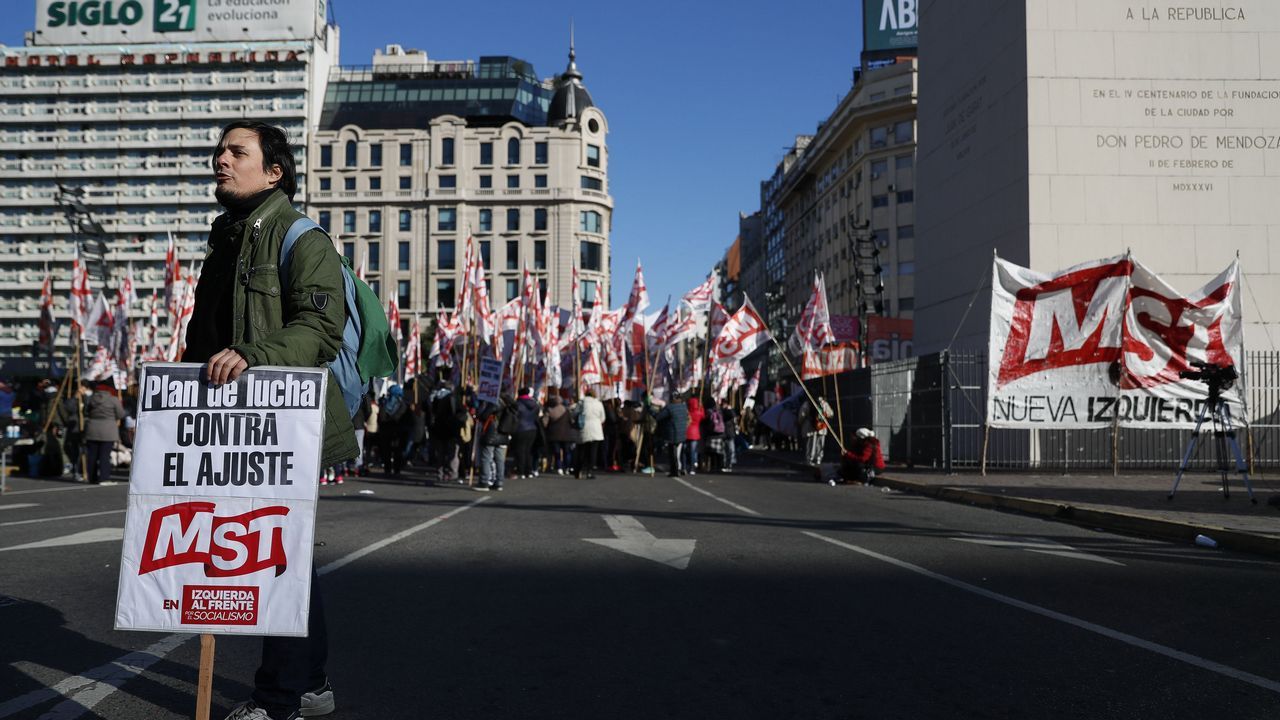Economy
Related: About this forumRecession feared in Argentina as cracks in economy grow
Signs are mounting that Argentina is headed toward recession, less than two years after emerging from the latest one, as a severe drought and currency crisis shakes Latin America’s third-largest economy.
GDP declined on an annual basis (-0.9%) for the first time in 14 months, the government reported Tuesday. Economic activity fell 2.7% in April alone - the largest monthly decline the December 2001 collapse.
Adding to the currency crisis, which forced the central bank to raise discount rates to 40% (the highest since 2002), is the worst drought in 9 years. Agricultural output plunged 30.8% in April from a record harvest last year, further weighing on economic activity.
IMF bailout
A recession would complicate budget cuts President Mauricio Macri agreed to with the IMF on June 8 in exchange for a $50 billion stand-by credit line.
Opponents note that besides unconstitutionally overriding Congress' budgetary authority, the terms do little to curb a record $31 billion current account deficit - projected to reach $40 billion this year.
Under Macri, these deficits have been largely financed with foreign debt - up 70% to $254 billion since taking office. Public sector foreign debt has doubled as of March to $176 billion.
Some $15 billion has since been drawn from the IMF credit line on June 22 - enough to finance just 10 weeks of capital flight at the current rate.
Macri is reportedly mulling reimposing some of the currency controls in force from 2012 to 2015. Banks have already been ordered to shed most dollar reserves, bringing the maximum (5% of assets) back to 2015 levels.
Second recession
This would be the 2nd recession since Macri took office.
Macri won the 2015 election promising to spark growth with deregulation and tax cuts; but devaluation and utility rate hikes of over 1000% have instead hampered the economy and contributed to stubbornly high inflation.
Prices have more than doubled, with real wages falling an estimated 13%. And despite recovering from the 2016 recession with 2.9% growth last year, per capita GDP remains below 2015 levels.
Signs of economic trouble have now returned. From the same time last year, industrial production slipped 3.3% in May and construction permits fell 20% in April.
Some 95,000 jobs have been lost from January to April alone, pushing unemployment up to 9.1%.
Chances of a recession in 2018 rose from 24.4% in April to 68.1% in May, according to a leading index published by Torcuato Di Tella University. Their consumer confidence index fell to an anemic 36 - a 30% drop from November.
Emerging emergency
Morgan Stanley surprised analysts by upgrading Argentina to "Emerging Market" status on June 20. The MERVAL blue chip index has since fallen 15%, with the dollar rising 7% to nearly 30 pesos as of Friday - a 60% jump so far this year.
"Budget cuts don't solve the capital flight problem - the source of most of the bloodletting," former National Bank head Delfina Rossi noted. "This isn't so much austerity, as an austericide."
At: https://www.bloomberg.com/news/articles/2018-06-28/recession-feared-in-argentina-as-cracks-in-economy-grow
Argentine labor on strike earlier this week against austerity cutbacks imposed by the IMF bailout agreed to by Macri on June 8.
The terms include public works cuts of 81% and the sell-off of some state assets - but no reversal of corporate and high-end tax cuts costing $4 billion annually, and no curbs on mounting capital flight.
